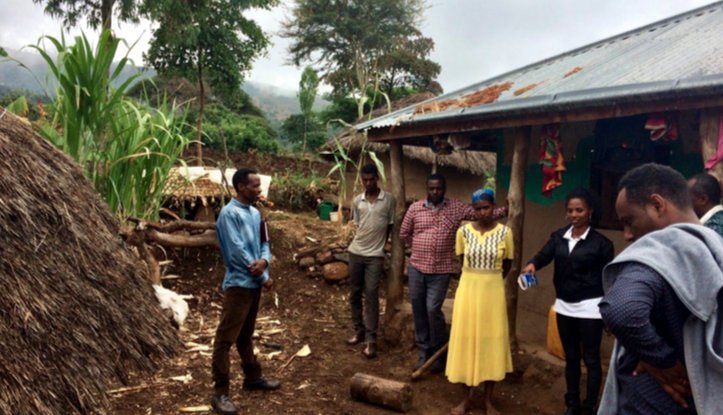Today I’d like to dive in a bit to describe how behavior change plays a role in our work. Impact begins with behavior change. Community-level behavior change begins with innovators. Innovators are those ready to take action and be a driving force in their community.
Denknesh Abro is one of those innovators ( pictured center in yellow dress ). She is a member of the Genda Multi-purpose Cooperative in Zala Woreda, SNNPR, Ethiopia, and a champion farmer who opens her home to other cooperative members throughout the year to discuss the suite of integrated agriculture and livestock best practices she employs at her homestead and on her farm. For example, pictured center-left is maize stacked and covered for drying to limit environmental damage that leads to extensive post-harvest losses. To the left of the stacked maize, an improved variety of napier grass is being prepared for transplanting into her fields. Denknesh is producing the napier grass to feed her goats that she has received on loan from her Nuru-supported cooperative. She will repay her loan after 3-4 months of fattening her animals for sale at Ethiopian Christmas.
Denknesh is one of thousands of Nuru farmers in Ethiopia and Kenya that pay careful attention to issues and topics relevant to rural households in their communities. As priorities change or issues of production shift, Nuru relies on farmers like Denknesh to provide feedback. Farmers engage with local Nuru country offices through mobile monitoring systems, focus groups, and household extension services provided by community development agents. Nuru uses this data to drive the review and adaptation of services to communities year-to-year as well as to inform other stakeholders in the region.


